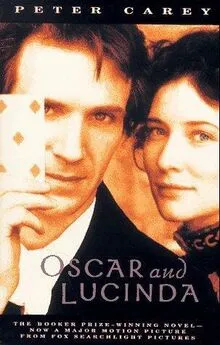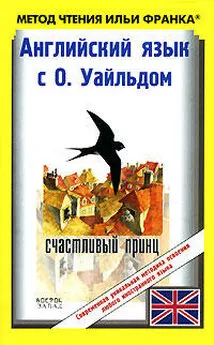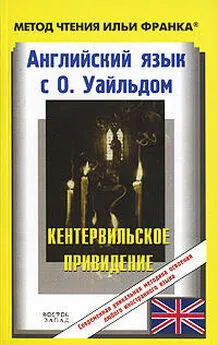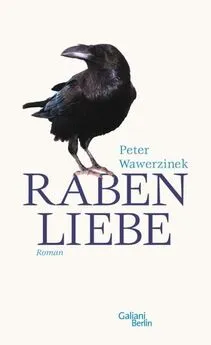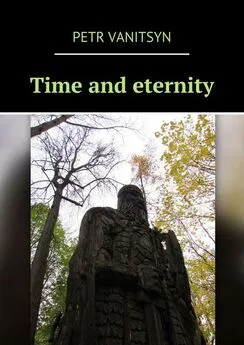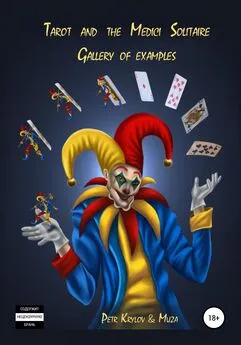Peter Carey - Oscar and Lucinda
- Название:Oscar and Lucinda
- Автор:
- Жанр:
- Издательство:Vintage Books
- Год:1988
- Город:New York
- ISBN:0-679-77750-4
- Рейтинг:
- Избранное:Добавить в избранное
-
Отзывы:
-
Ваша оценка:
Peter Carey - Oscar and Lucinda краткое содержание
The Booker Prize-winning novel-now a major motion picture from Fox Searchlight Pictures.
This sweeping, irrepressibly inventive novel, is a romance, but a romance of the sort that could only take place in nineteenth-century Australia. For only on that sprawling continent-a haven for misfits of both the animal and human kingdoms-could a nervous Anglican minister who gambles on the instructions of the Divine become allied with a teenaged heiress who buys a glassworks to help liberate her sex. And only the prodigious imagination of Peter Carey could implicate Oscar and Lucinda in a narrative of love and commerce, religion and colonialism, that culminates in a half-mad expedition to transport a glass church across the Outback.
Oscar and Lucinda - читать онлайн бесплатно полную версию (весь текст целиком)
Интервал:
Закладка:
5:27–30. "Ye have heard it said by them of old time, thou shall not commit adultery."
Christmas Day
He then had the pleasure of seeing his impromptu sermon take effect as his most carefully prepared addresses never had. There was a ripple, a shiver that'moved across the congregation like wind across the face of a pond. He froze them. He had them so quiet they hardly dared unfold their arms or cross their legs the other way. They formed a human lock around the two fornicators who sat rigid in their pew, their red necks advertising guilt. On Christmas Day the sky was a rich cobalt blue. The grass at Whitheld's Farm (being understocked) was long and golden and crackling underfoot.
The day had seemed perfect to Lucinda in every detail. She and Oscar had set a table in the garden before they left for church. The jacaranda had lost its flowers and was now a feathery umbrella of cool green. A soft nor'easter came off the harbour. They placed their presents on the parlour hearth and walked through the embarrassing plenty of Whitheld's Farm (all of New South Wales was in the grip of drought, and all the feed between Sydney and Bathurst was eaten down to the roots) through all the golden grass to church. Oscar said the colours felt wrong for Christmas. Lucinda said the colours in Bethlehem must surely have been like this: this dazzling blue sky, this straw-gold earth, and not the cold and bracken-brown of pagan Britain. Oscar smiled at her, his eyes glistening.
She thought: He does love me. And if his behaviour is always proper, then it is perverse of me to be irritated with him because of it. I could not respect him if he were to act improperly, to place, like Mr d'Abbs or Mr Paxton, his hand upon my knee.
She accepted the glistening fluid that threatened to spill over his lower lids as the exact equivalent of a kiss and she was moved, and excited, and bowed her head and fixed her bonnet although she had not planned to do so until they were amongst the new houses of Balmain. And then there was the sermon.
She felt herself slapped and spat on and all that landscape which she had smugly celebrated not half an hour before-she had gone on and on, naming trees and birds for her companion-now seemed a hateful place-dry, harsh, a tinder-box with black snakes coiled amongst its deadly grasses.
The urge to cry was so strong she must battle with her body to subdue it. She bit her lip and breathed through her mouth. She ran the gauntlet of the crowded churchyard with her face blazing red. She thought: They hate me, and it is not only the men. Oscar said: 'They do not even know us," but this voice was high and
Oscar and Lucinda
nervous. This tone was no help. She drew away from him.
"I cannot speak," she managed. She took off her bonnet and, in her agitation, wrapped it around her prayer book while they were still in sight of the church.
"It was a most unchristian sermon," said Oscar to whom had come, in the midst of all this turbulence and upset, the following very simple thought: It is my duty to save her name; there is no question but that I must propose marriage to her. This thought was both respectable and gentlemanly, but because it so neatly coincided with his own desires, he could not believe it uncorrupted. "Most unchristian," he repeated.
"Oh, do not be so hurt," she snapped.
"It is on your behalf I hurt."
"I thank you, but on my behalf it would be best if we did not discuss the matter." Lucinda did not like herself like this. She knew herself wrong and also in the wrong. She was poisoned by that hateful sermon, by its crudeness, its intolerance, its certainty of its own whiskyand-tobaccosmelling strength. And now she snapped and slapped at the one soul whose goodness and kindness she would not question. She was acting like a spoiled child, like her mother had acted on the days when her daughter hated her, and although she knew all this, she could not stop herself. She was tearing Christmas Day to shreds.
She had put such store in this day, and not merely in the care with which she chose a turkey and a pair of pale blue poplin shirts for her dear friend. In her imagination she had seen all the unspoken things between them come, at last, to be spoken of directly. She had imagined the shirts laid across the faded damask of the parlour armchair, seen crumpled paper and golden ribbon discarded on the blood-red Turkish rug. And other things, like kissing, but not quite so sharp and clear, with furry unfocused edges like a water-colour.
But now she could not bear the way she sounded. She was not a person anyone could love. She drew herself into herself, and when they let themselves into the cottage she could not even look at the table she had set with so many feverish thoughts. She told herself: It does not matter what bigots think of me.
But it did matter. She could not bear to be so hated.
She took down the chipped brown-glaze tea-pot. She put the kettle on the stove and riddled the grate and then, feeling her tears well up inside her, she hurried upstairs to her room. Oscar saw the tumescent top lip and understood her intention. She was going to her room to cry.
Christmas Day
But he was to propose to her.
If he delayed the matter further all courage would depart him. And this is why he went chasing after her, up the clattery uncarpeted stairs, two strides at a time. He caught her on the landing and he dare not ask her to accompany him downstairs to some prettier place-he saw she would almost certainly refuse this for, not understanding his intention, she had a cornered, wild-eyed look. So it was here, in the gloomiest corner of the cottage, the sticky place were Prucilla Twopenny had once spilled a pot of honey from her mistress's breakfast tray, that Oscar put his proposal to Lucinda Leplastrier.
Some peeling wallpaper tickled against Lucinda's neck. She hit at it, imagining a spider. Oscar put his hand in his pocket and jiggled his pennies and threepences together. He wished to be principled. He did not wish to take advantage of a situation where a Christian and gentlemanly act would so benefit his personal desires. He therefore excluded from his breathless speech everything good and noble in his heart. He jiggled his change. He tapped his foot. He offered to marry her to "save your reputation in Balmain."
"Oh, no," she said, "you are too kind to me."
And thus fled to her room. There she wept, bitterly, an ugly sound punctuated by great gulps. She could not stop herself. She could hear his footsteps in the passage outside. He walked up and down, up and down.
"Come in," she prayed. "Oh, dearest, do come in." But he did not come in. He would not come in. This was the man she had practically contracted to give away her fortune to. He offered to marry her as a favour and then he would not even come into her room.
Later, she could smell him make himself a sweet pancake for his lunch. She thought this a childish thing to eat, and selfish, too. If he were a gentleman he would now come to her room and save her from the prison her foolishness had made for her. He did not come. She heard him pacing in his room.
It was into this environment that Mr Jeffris came with his hock bottle and his meticulously wrapped little gifts. He brought a packet of Eleme raisins for Lucinda and a brass compass for Oscar. And although he was not exactly a jolly man, and was, indeed, for the most part angry and when not angry rather doleful, he was capable of charm when there was sufficient reason for it. He was compact and good-looking with a great deal of lustrous black hair and very white even teeth beneath his big moustache and when he engaged you in conversation
Oscar and Lucinda
he had the trick of holding your eyes-no matter where his obsessive mind was really dwelling-as if what you had to say was of great importance to him. He was, as Mr d'Abbs would later claim, an actor, although not such a good one that he would, in normal circumstances, have deceived Lucinda.
But the circumstances were not normal and it was Mr Jeffris who rescued them from the embarrassment and estrangement of their ruined Christmas Day. His hock was warm and more than a little acid, but they drank it thirstily and ate his raisins and shared their shortbread and laughed gratefully at his jokes and talked about the journey to Boat Harbour in such a shy and tentative way that Mr Jeffris, not understanding the personal aspect of the matter, began to think that his own speech had "put them off."
"You should not pay much heed to my little speech in Sussex Street," he said. He smiled and tugged at his moustache and seemed to be debating as to whether he would continue to take them into his confidence. "I will tell you," he said. "My situation is that I am employed, eh? For the present at any rate. And while I am employed it is a case of he-who-pays-the-ftddler-calls-thetune, isn't that so, Miss Leplastrier?"
"Mr d'Abbs required you to answer in this way?" Lucinda asked. Mr Jeffris could see he did not have her full attention. He could not know that her mind was much occupied with the question of the lamp and whether she had turned it down low enough to hide the evidence of her red-rimmed eyes. Mr Jeffris thought the expedition in grave danger of being stillborn.
"He did not specifically tell me to answer as I did, Miss Leplastrier, but I understand my employer well enough. You must have noted how happy the little chap was with the answer I gave." (He said "little chap" on purpose. It was calculated to communicate the complications of their relationship.) "It has been on my conscience ever since. I mean, that I deceived you. I thought I might write you a note, and then there was too much delay involved in such a plan. I never like delay. There is so much of it that can be avoided. It is true in business and in journeys. So I said to myself, this is unnecessary delay, and besides," Mr Jeffris smiled at them, first at Oscar, then at Lucinda, "it was Christmas, so I called in person."
"It is very kind of you," said Oscar, squirming in his seat and hazarding a smile towards Lucinda whose moods and motives were of far more importance to him than Mr Jeffris's; so although he was, indeed, puzzled by the pleasant transformation of the head clerk's character,
Christinas Day
his interest in the man was of a much lower order than his interest in Lucinda Leplastrier who now, in the lamplight, bestowed such a sweet smile on him that he knew his rude assumption about marriage now to be forgiven. He might not be loved, not yet, but neither was he to be hated as he had feared all through the dreadful afternoon. He would not propose again until he had made the journey which Mr Jeffris was, at this very moment, so enthusiastically discussing. Oscar heard him say that there was, contrary to what he had said in Mr d'Abbs's office, a safe way to Boat Harbour.
"Provided," Mr Jeffris said, spreading butter on his shortbread and thereby causing Lucinda's eyebrow to raise itself, "provided you will gently-gently catchee monkey." It did not occur to Oscar that this philosophy did not mesh with one that could not tolerate delay. He was more interested in the butter on the shortbread and raised an eyebrow of his own and thereby-ah! — caused Miss Leplastrier to smile.
Читать дальшеИнтервал:
Закладка:
